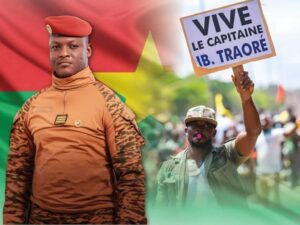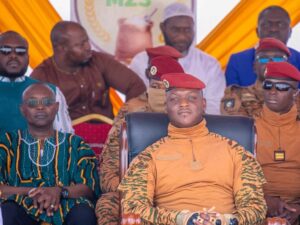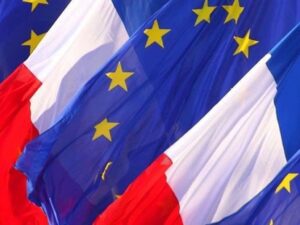Burkina Faso/Commemorative Day: August 4, 1984 – August 4, 2023, Upper Volta became Burkina Faso
Established on March 1, 1919, as a colony of French West Africa under the name Upper Volta, Burkina Faso celebrates the commemorative day, August 4, 1984, when it acquired the name «the land of honest men» under President Thomas Sankara.
One year after taking power, Captain Thomas Sankara and his comrades Blaise Compaoré, Henry Zongo, and Boukary Lingani overthrew Jean-Baptiste Ouédraogo, whom they accused of serving «the interests of foreign domination and neo-colonialism», and Upper Volta became Burkina Faso on August 4, 1984.
The late President of the Burkinabe Revolution, accused of planning a coup with Libya to overthrow the power of Dr. Jean-Baptiste Ouédraogo, was arrested on June 17, 1983, and imprisoned.
Subsequently, military sub-officers, notably Captain Blaise Compaoré, launched a forceful operation in the capital with a Pô commando to free their comrade Thomas Sankara and overthrow the military government of Jean-Baptiste Ouédraogo, who had also come to power through a coup in 1982.
On the night of August 4-5, 1983, Captain Thomas Sankara made a declaration on national radio, taking full responsibility for their actions, the coup d’état, and reassuring that Dr. Jean-Baptiste Ouédraogo was safe and sound.
One year after forming a National Revolutionary Council (CNR) to chart a new course for the country and its people, Sergeant-Chef Georges Namoano announced significant changes on national television.
Georges Namoano declared, among other things, the change of the country’s name, motto, and coat of arms. From then on, Upper Volta became Burkina Faso, which means «the land of honest men».
It became a democratic and popular state. «Faso» represents the republican form of the state.
According to Sergeant-Chef Namoano, the people of Upper Volta should now be called Burkinabe.
The military sub-officer also announced a change in the national flag, which was previously black, white, and red. The new flag consists of two equal horizontal bands, with red above and green below, and a yellow five-pointed star in the middle.
The national anthem, «Proud Volta», which was seen as colonialist, was replaced by «Ditanyè» (Victory anthem in English).
The flag symbolizes pride, passion, tearing apart, or coming together, in essence representing strong values that characterize the country regarding its true history, its experiences, and the direction it wanted to take from then on.
Beyond these changes, Captain Noël Isidore Thomas Sankara and his comrades instilled a new dynamic in the Burkinabè people, encouraging them to be unburdened, innovative, winners, and open-minded, to « dare to invent their future» despite the natural difficulties faced by the landlocked country of 274,200 square kilometers located in the heart of West Africa, surrounded by the majority of other states.
Thomas Sankara’s main battle was to fight for true independence for the country, cutting off all kinds of foreign influences.
As a committed pan-Africanist, he firmly believed that the salvation of the ephemeral states of West Africa lies in their unity.
He passionately and consciously pursued this vision at high summits among his peers until his assassination on October 15, 1987.
Paul TOE






